A steep learning-curve
As well as writing all my life, I’ve also spent all my working life in education, in some form or another. This meant that when I left my full-time teaching job a couple of years ago, I didn’t have first-hand business experience. In fact, I regarded business skills with the same suspicion that many creative people I know exhibit. The prevailing feeling being that:
1) the creative process and business don’t mix
2) if you do mix creativity and business as a writer, you’ve sullied yourself or ‘sold out’ somehow
3) there is something unethical about marketing oneself.
So, after I left my job, I took online courses and read books about marketing and business and entered a steep learning-curve, one that set me against these prevailing ideas and that was uncomfortable, but I figured that uncomfortable was good.
Generic as carpet
I have since realised that any kind of work (from plumbing to teaching to rocket science) involves ‘selling yourself’ but that doesn’t mean it’s a bad thing. I’ve also realised that marketing is as generic as carpet. Carpet could be unethical depending on its providence or the materials used in its construction, some people don’t want or need carpet, carpet comes in a whole heap of varieties – and that’s probably where the comparison ends. I guess I’m saying that I learnt this the hard way.
If you want to make money from your writing (big if of course), you need a business mindset at least some of the time. I’ve come across all sorts of business ideas since setting out on this journey (lead magnet or sales funnel anyone?) but I’ve got space to talk about one of them: finding your ideal reader.
Define your ideal reader
One of the first things I learnt was about the concept of ‘your ideal reader’, or creating an ‘ideal customer profile’ in sales speak. When my first novel came out, if someone had asked me ‘Who’s your target audience?’ I would have said ‘anyone who wants to read it’. Now that response was complicated by others’ attempts to categorise the book. At the time (mid-noughties) the idea that a novel could be categorised as ‘lesbian fiction’ was controversial because of questions such as: is lesbian fiction really a genre? Is it too niche? Is that category based on the book or the sexuality of the writer? Am I pigeon-holing myself? Why aren’t other books branded ‘heterosexual fiction’?
Lesbian fiction
I have a (fond?) memory of my launch: my family sitting in a row under a display of The Water’s Edge – with a big sign above it saying ‘lesbian fiction’ – and looking very uncomfortable. My grandfather later told me the book was ‘blasphemous’. Yet the novel doesn’t mention the word ‘lesbian’ once and what he described as blasphemous was intended (at the time) as gentle affection for the particular brand of religion that rejected me when I came out.
A few people have recently – enthusiastically – told me that The Water’s Edge and my second novel The Haven Home for Delinquent Girls are YA novels, as if it were self-evident. (Someone wrote a biog for me when I was down to chair a panel at a festival, for example, and said I was an ‘accomplished YA author’, which made me smile.) But the thing is, YA didn’t exist in the cultural consciousness as a genre in 2003 and 2004.
Think from the readers’ point of view
So, the first thing to understand from the question ‘Who’s your target audience?’ is not to take it too personally. Instead, think from the readers’ point of view. Who else do they like to read? The Water’s Edge target audience wasn’t young lesbian blasphemers, or at least I haven’t met any if it was! But I could start with people who like Crin Claxton’s supernatural detective books.
Secondly, your target audience isn’t ‘everyone’. This is a good thing. Americans pronounce ‘niches’ to rhyme with ‘riches’ – as in the saying beloved of the marketing-types I’ve been listening to: ‘the riches are in the niches’. Yes, I find that annoying, but also interesting. One way to identify your ‘niche’ is to think about who you like to read, or what you’ve read over the last few months. A ‘niche’ isn’t exactly the same as a genre, it’s more to do with where you’ll find your fans.
Go to where your readers are
Why is this question of target audience important? Because you need to know who your readers are and where they hang out if you’re going to find them. Logically, for them to know about you, you need to find your ideal readers and connect with them. (Dan Blank talks about this in Be the Gateway.) If your target audience is likely to attend literary festivals, that’s where you need to be too. Do they go to spoken word events? Do they hang out on Facebook? Do they read blog posts? Start by being a fan yourself – or what Rob Spillman, editor at Tin House called a ‘literary citizen’ – find writers that you like to read and big them up.
Do more than one thing
Another idea that helped my understanding a lot is ‘diversification’. The people I know who make money from their writing do more than one thing. For example, I have met several people who are copywriters part-time and poets, playwrights or novelists the rest of the time. Writing articles, teaching, arts admin and editing are other possibilities, as is working for one of the many third-sector writing organisations. This kind of blended career is common and absolutely not a sign that you’re ‘not really a writer’. What’s this got to do with going to where your readers are? Because all of those things enable you to connect with people in meaningful ways.
A friend of mine, Robin Houghton, recently wrote and sold several copies of ‘A Guide to Getting Published in UK Poetry Magazines’. Pretty niche. How did she manage it? She’s totally immersed in the UK Poetry scene, not because she loves selling, but because she loves poetry. She went to where her readers were (virtually and physically) – or rather, she was already there.
Here are some of the books I’ve read along the way:
Be the Gateway by Dan Blank
The Business of Being a Writer by Jane Friedman
The E Myth Revisited by Michael E. Gerber (Not for the fainthearted.)
Real Artists Don’t Starve by Jeff Goins
Platform by Michael Hyatt
No Contacts? No Problem! by Catherine Quinn
To Sell is Human by Daniel Pink


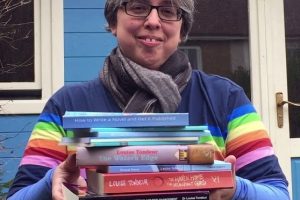
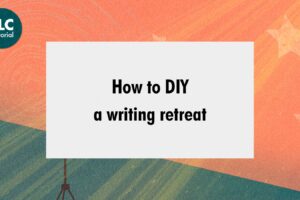

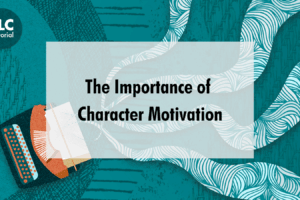

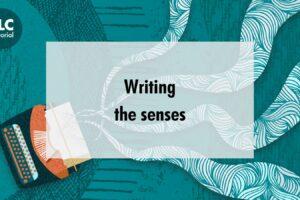
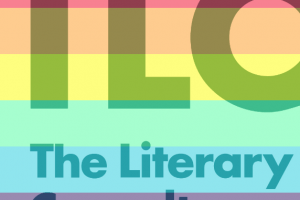
3 responses
excellent article. Extremely helpful and informative. Thanks very much.
Patricia
Great post, Louise. And thanks for the mention! What you say makes sense – especially ‘go to where your readers are’. I’ve heard so many writers wail that they don’t know how to promote their work. Your advice to think more like a reader is so true, and it takes the pressure off for people who hate talking themselves up. (It’s not about YOU it’s about THEM). My experience has been in the opposite direction., having started as a marketer, then gradually got more immersed in poetry. For me, marketing is purely about creating demand and delivering profit, neither of which sit comfortably with my ‘poetry head’. I’m also a poor salesperson (marketers expect other people to do the selling… which is easy if the marketer has done a good job!) BUT it’s true that if you want people to know about your book (let alone read it) then a modicum of business-headedness is desirable if not essential.